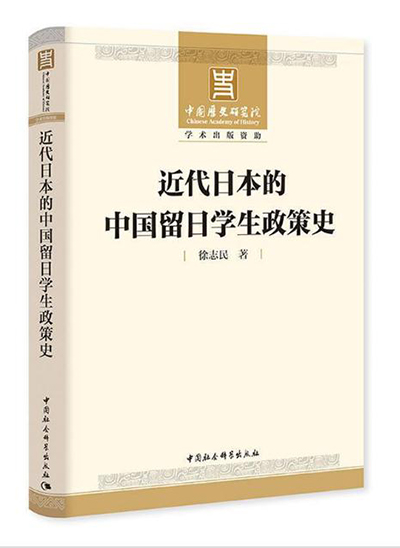Modern Japanese policies for Chinese students

A History of Modern Japanese Policies on Chinese Students
Modern Chinese students studying in Japan saw large numbers and a large scale, and they were closely tied to China-Japan relations. Therefore, the group has received great attention from Chinese and Japanese scholars, with quite fruitful research results.
A History of Modern Japanese Policies for Chinese Students, written by Xu Zhimin, a research fellow from the Institute of Historical Theory at the Chinese Academy of Social Sciences, systematically expounds upon the emergence and formation, development and evolution, and failure of modern Japan’s policies on Chinese students studying in Japan.
The book examines how Japan accepted, educated, and managed Chinese students studying in Japan, and what policies Japan formulated for the group, who flocked to Japan after the War of Jiawu (1894–95). The book groups Japanese policies for Chinese students in chronological order. First, it elaborates on late Meiji (1868–1912) Japan’s initial establishment of acceptance systems, condensed and rapid educational programs and academic restrictions, and speculative management policies for Chinese students. In the Taishō period (1912–26), these policies were gradually “improved.” In the early Shōwa period (1926–89), China and Japan negotiated policies for Chinese students in Japan.
Afterwards, during the War of Resistance Against Japanese Aggression, Japan strengthened investigation and monitoring of Chinese students in Japan, in an attempt to train “aiders” to serve Japan’s policy of aggression against China. This kind of policy contained political conspiracy and aggressive ambition, and went against the fundamental educational imperative to share scientific and cultural knowledge and promote world peace and development, thus inevitably and ultimately failing.
The history of Chinese students in Japan mirrors the history of modern China-Japan relations. On the surface, the book reviews the history of modern Japanese policies towards Chinese students. At a deeper level, it starts from China-Japan educational exchanges with the historical context of Western forces invading China, and focuses on interactions between modern Japanese policies on Chinese students and Japanese policies and strategies toward China. Meanwhile, while centering on the struggle for educational rights for Chinese students abroad, the book includes international relation patterns in which European and American powers and Japan both cooperated and contended with each other in East Asia. At the time, studying abroad no longer meant simply disseminating and exchanging scientific and cultural knowledge and human civilizations’ achievements, but became dragged into the frenzy of modern powers as they attempted to carve up the world’s colonies.
Wu Yihua is from the School of Japanese Studies at Beijing International Studies University.
Edited by YANG LANLAN

 PRINT
PRINT CLOSE
CLOSE